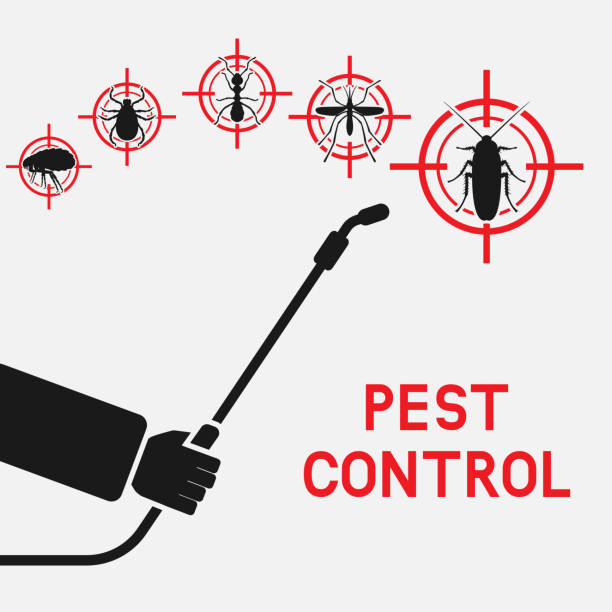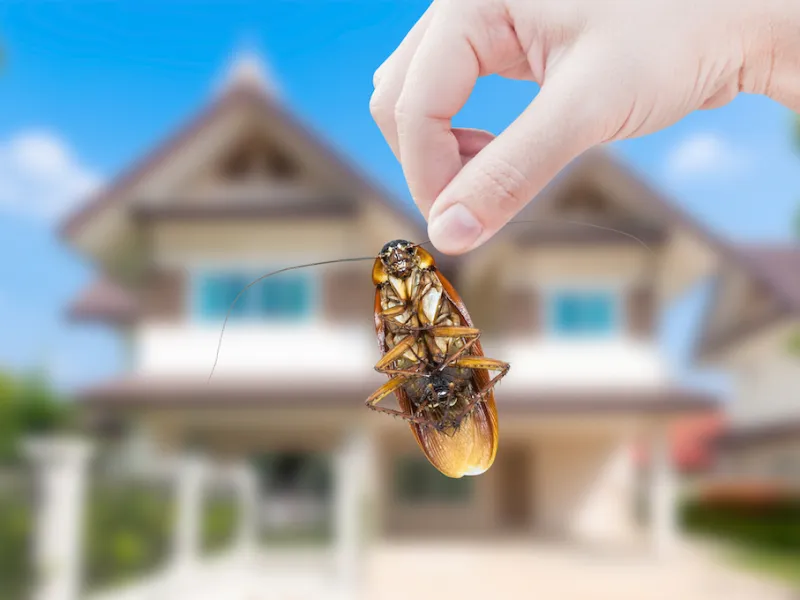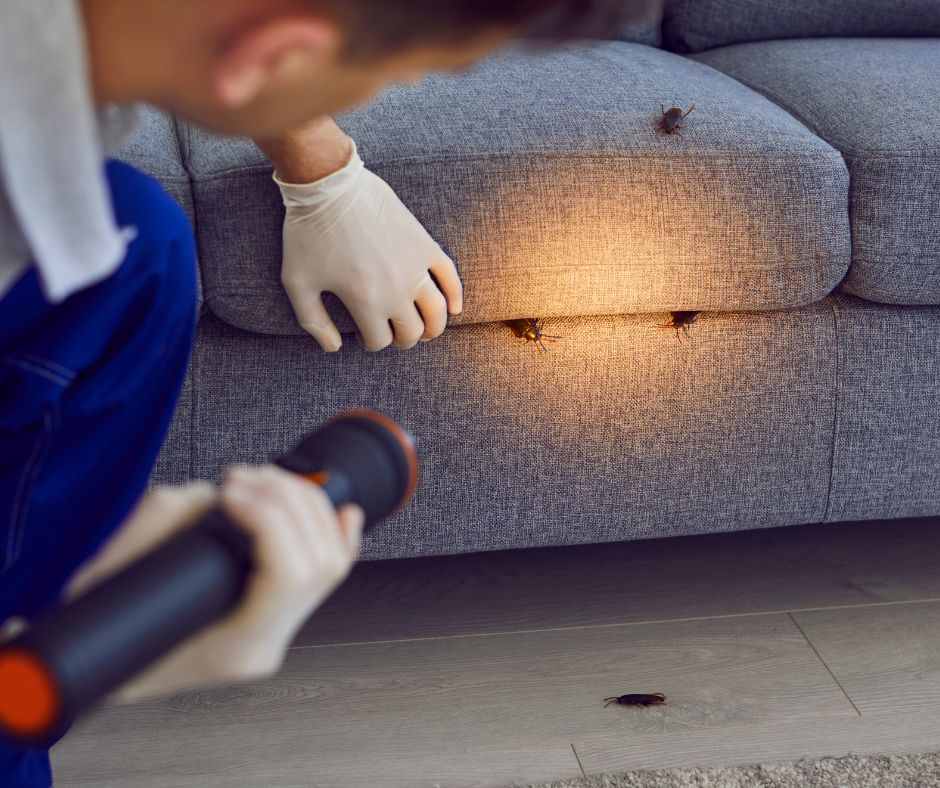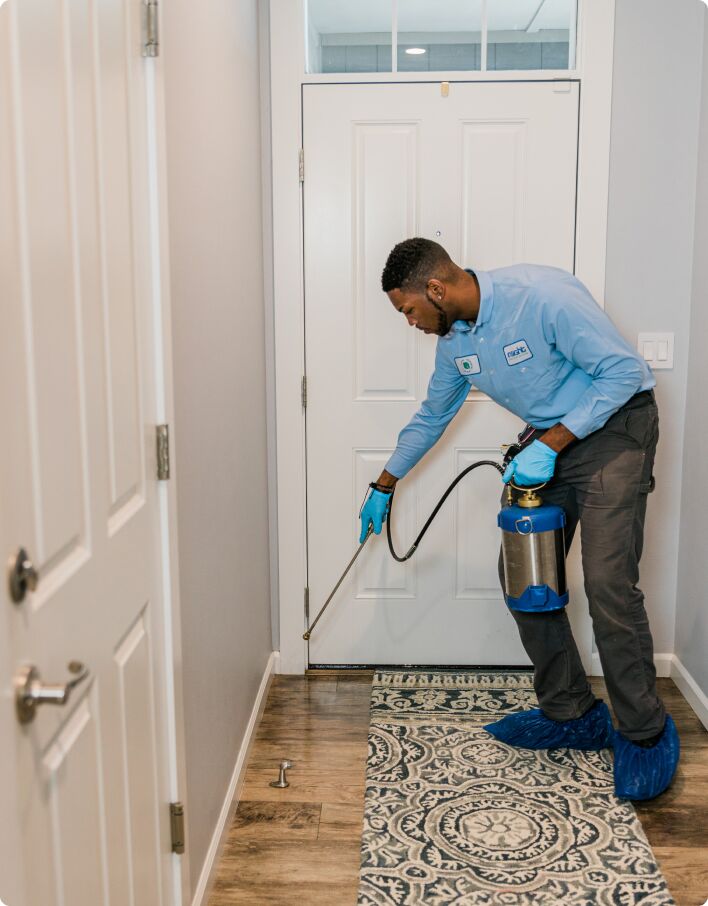Expert Rodent Control Port Charlotte to Prevent Damage to Your Property
Reveal the Significance of Parasite Control in Preserving a Healthy Setting and Therapy Techniques

The Role of Bugs in Ecological Communities
Pests, usually watched solely as nuisances, play a diverse role in ecological communities that is vital for keeping ecological balance. They contribute significantly to different environmental procedures, including pollination, vitamins and mineral biking, and bug control. For example, lots of insect types, such as and butterflies, are vital pollinators for a variety of plants, which consequently sustains biodiversity and food production.
Additionally, bugs work as victim for various killers, creating a crucial web link in food webs. This connection guarantees the survival of numerous varieties and helps regulate populations within communities (Termite treatment Port Charlotte). Furthermore, decomposer pests, such as particular beetles and fungi, contribute in damaging down raw material, hence enhancing soil and promoting vitamins and mineral recycling.
On the other hand, while pests can be beneficial, their overpopulation or invasion right into non-native settings may disrupt these eco-friendly features. This intricacy underscores the importance of understanding parasite dynamics, as efficient pest management approaches have to think about both their eco-friendly roles and possible influences on human activities. Balancing pest visibility while minimizing injury is important for maintaining the integrity of communities and making certain farming productivity.
Health And Wellness Dangers Related To Insects
The visibility of pests in different environments extends past their environmental roles, as they additionally posture considerable health dangers to people and pets. Several parasites, including bloodsuckers, insects, and rodents, are service providers of illness that can have major health implications. Rodents are known to transfer hantavirus and leptospirosis, both of which can lead to serious respiratory system and renal concerns, respectively.
Insects such as ticks and insects are infamous for spreading vector-borne conditions like jungle fever, dengue high temperature, and Lyme disease. These ailments can cause high morbidity and death prices, specifically in prone populaces. Furthermore, parasites like cockroaches and bedbugs can aggravate allergies and bronchial asthma, adding to respiratory system problems in individuals, specifically those with pre-existing conditions.
Furthermore, the visibility of insects can lead to emotional anxiety and discomfort, impacting general wellness. Contamination of food and surfaces by pest droppings and remains can cause foodborne diseases, highlighting the importance of keeping hygienic problems. As a result, comprehending the health and wellness dangers related to insects is essential in acknowledging the necessity of reliable insect administration methods to guard animal and human health and wellness.

Benefits of Reliable Parasite Control
Effective insect control is important for maintaining a healthy and balanced and risk-free environment, as it continually alleviates the various threats associated with insect invasions. One of the key advantages of effective bug monitoring is the reduction of health and wellness risks.
In addition, reliable insect control safeguards property and structures from damage. Many bugs, like termites and woodworker ants, can cause considerable structural damage that might require costly repair services. By proactively taking care of these house owners, infestations and companies can protect their investments.
One more substantial benefit is the enhancement of overall top quality of life. A pest-free setting adds to psychological well-being and decreases anxiety connected with infestations. Additionally, reliable insect control cultivates a much safer atmosphere for youngsters and pet dogs, making sure that homes stay havens cost-free from hazardous chemicals and disease-causing microorganisms.
Usual Pest Control Techniques

In the realm of bug monitoring, various methods are used to combat look at more info problems successfully. These strategies can be extensively classified right into 3 main approaches: social, mechanical, and chemical controls.
Social control includes changing methods to lower insect establishment, survival, and reproduction. This might include crop turning, proper cleanliness, and habitat adjustment, which jointly develop an atmosphere much less for pest spreading.
Mechanical control uses physical methods to eliminate insects (Termite treatment Port Charlotte). Methods such as vacuums, obstacles, and catches are commonly used to directly eliminate parasites from a location. This strategy is particularly efficient for taking care of rodents and insects without making use of hazardous chemicals
Chemical control involves the application of chemicals to handle pests. These materials can be categorized right into fungicides, herbicides, and insecticides, each targeting specific kinds of pests. It is critical to utilize these chemicals judiciously, sticking to safety and security standards and laws to lessen possible damage to non-target types and the environment.
Each bug control technique has its advantages and constraints, and frequently, an integrated method integrating numerous approaches yields the ideal lead to maintaining a pest-free atmosphere.
Sustainable Insect Monitoring Practices
Sustainable parasite administration methods incorporate a variety of strategies designed to minimize ecological effect while successfully managing insect populaces. These methods focus on using ecologically friendly techniques over chemical pesticides, thereby reducing the danger of damage to non-target types, consisting of valuable pests, wildlife, and people.
Integrated Insect Management (IPM) is a foundation of sustainable practices, integrating organic, social, mechanical, and chemical strategies to manage pests. Biological control includes presenting all-natural predators or bloodsuckers to subdue pest populaces. Social methods, such as crop rotation and polyculture, interrupt pest life cycles and boost ecological community resilience.
Mechanical methods, such as barriers or traps, can properly prevent parasite accessibility without chemical intervention. In addition, preserving healthy and balanced ecosystems with appropriate soil administration, see here plant health, and biodiversity can naturally alleviate insect issues.
Education and learning and awareness are crucial parts, equipping communities and people to acknowledge pest risks early and execute safety nets. Termite treatment Port Charlotte. By promoting an all natural strategy that stabilizes bug control with ecological integrity, sustainable parasite administration practices not only shield frameworks and plants however additionally add to a healthier environment for future generations
Verdict

Comprehending the health and wellness risks linked with bugs is essential link in identifying the need of effective pest administration strategies to safeguard human and animal health and wellness.
Effective bug control is important for keeping a healthy and safe setting, as it consistently reduces the many risks connected with pest problems.Integrated Pest Management (IPM) is a keystone of lasting practices, incorporating organic, cultural, mechanical, and chemical strategies to manage bugs. By understanding the duty of pests, acknowledging involved health risks, and utilizing diverse treatment methods, a lasting approach to pest management can be attained. Integrated Pest Management (IPM) emphasizes a holistic approach that minimizes injury to helpful organisms while effectively regulating bug populaces.